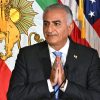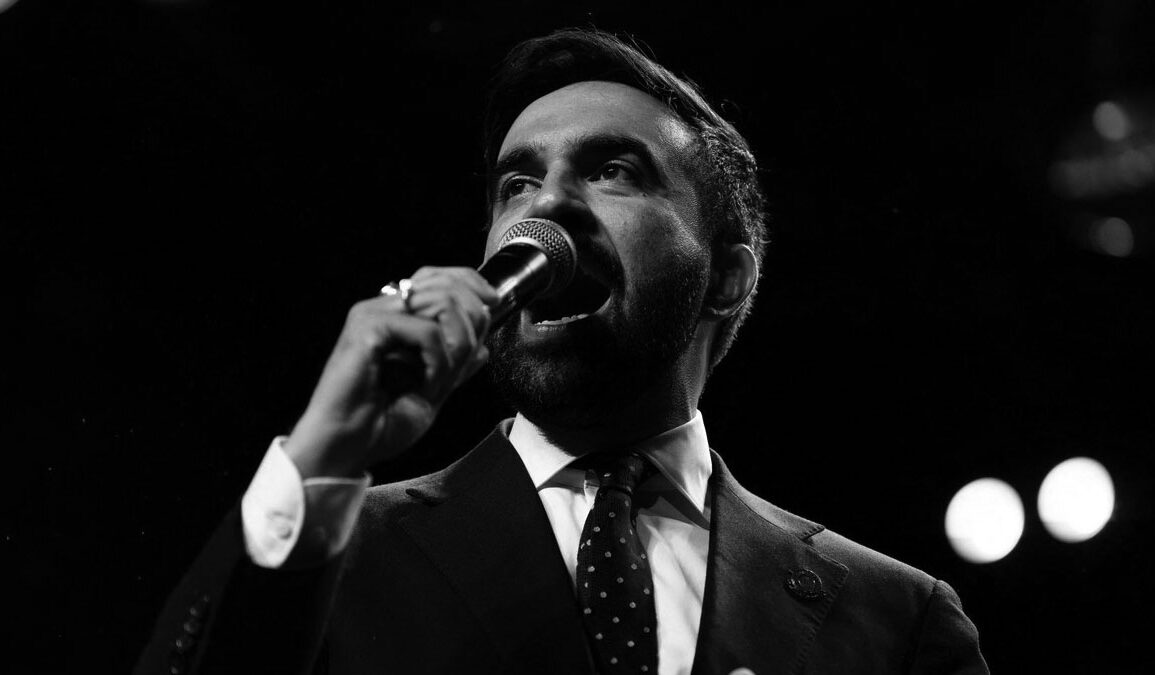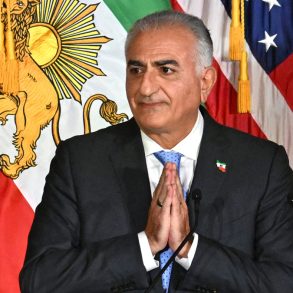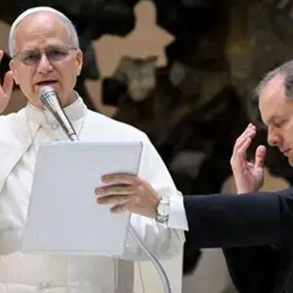A Socialist’s Stunning Rise
Zohran Mamdani, a 33-year-old New York State Assemblyman and self-proclaimed democratic socialist, has pulled off what many are calling a political earthquake. In a shocking upset, he defeated former Governor Andrew Cuomo in the Democratic primary for New York City mayor. Now, Mamdani is the frontrunner in the general election for one of the most powerful municipal positions in the country.
Born in Kampala, Uganda, to Marxist academic Mahmood Mamdani and filmmaker Mira Nair, Mamdani moved to New York as a child. He earned his degree in Africana Studies from Bowdoin College and began his political journey as a foreclosure prevention counselor in Queens. He entered the State Assembly in 2020 after narrowly defeating a four-term incumbent and has since positioned himself as one of the most ideologically extreme voices in the city’s political landscape.
Mamdani has made it no secret that his mission is to overturn capitalism’s role in New York governance. He is a member of the Democratic Socialists of America (DSA) and the Working Families Party. As the New York Times explained, Mamdani’s brand of “democratic socialism” is defined by its attempt to shift power from corporations to government and labor. In his own words, Mamdani wants “a city that works for you, that is affordable for you, that is safe for you.” But critics say his plan is a roadmap to economic ruin.
Radical Policies with High Costs
Mamdani’s platform is filled with proposals that are not just expensive, but fundamentally socialist in design. His most talked-about policies include:
- Raising the minimum wage to $30 an hour by 2030, automatically indexed to inflation. As he told supporters, “A living wage is a human right.” (Automating your job away is a reality – the real minimum wage is $0.)
- Freezing rent on all rent-stabilized apartments, which he claims will help keep people in their homes.
- Building 200,000 city-owned, union-built, permanently affordable apartments over the next ten years. His campaign describes this as “the largest public housing expansion in generations.” (Building the biggest socialist slum since the Soviet Union.)
- Opening city-owned grocery stores that would pay no rent or property tax and sell food at wholesale prices. (Can they do this better than BJs or Costco? – doubt it)
- Making buses free, funded by tax increases and state support. People always love more taxes and poorly maintained services.
To pay for these programs, Mamdani proposes a corporate tax hike to match New Jersey’s 11.5 percent rate, which he claims would raise $5 billion. He also wants to add a 2 percent flat tax on all New York households earning over $1 million. His campaign also suggests hiring more tax auditors, collecting fines from landlords, and overhauling procurement to raise another $1 billion.
Mamdani argued these ideas are affordable. “The city is projected to spend more than double the cost of our pilot program on corporate supermarkets,” he said, defending his grocery store plan. But many financial experts warn these projections are overly optimistic and could backfire.
Billionaire business leaders and even some Democrats have warned of the consequences. One grocery chain CEO said he would close locations in the city if Mamdani’s plan became reality. Governor Kathy Hochul has already rejected his tax plans, making it unlikely that the state will approve his funding proposals.
Beyond Economics
Zohran Mamdani’s platform goes far beyond rent freezes and minimum wage hikes. His broader agenda reflects a deeply ideological commitment to far-left causes that extend into policing, education, foreign policy, and social programs. Here are some of his most radical and controversial proposals:
1. Pro-Palestinian Extremism and Anti-Israel Policies
Mamdani has made headlines for his outspoken criticism of Israel and his support for the Boycott, Divestment, and Sanctions (BDS) movement. He co-founded a Students for Justice in Palestine chapter in college and introduced legislation to ban New York nonprofits from supporting Israeli settlements. He referred to Israel’s actions during the Gaza conflict as “a horrific war crime” and refused to condemn the slogan “globalize the intifada,” a phrase many interpret as calling for violence. His stance has drawn condemnation from Jewish leaders and the U.S. Holocaust Museum.
2. Defunding the Police
Mamdani supports shrinking the NYPD’s budget and reallocating funds toward social services. He has advocated eliminating cash bail entirely and ending qualified immunity for police officers. He also supports dismantling “broken windows” policing, which has been credited with reducing crime over the past three decades. Critics argue his policies would weaken public safety and further demoralize the city’s police force.
3. Government-Run Childcare and Baby Baskets
Under Mamdani’s plan, New York would provide free childcare for all children ages six weeks to five years, along with “baby baskets” filled with diapers, nursing pads, swaddles, and other items. While supporters claim it’s a way to reduce financial stress on new families, skeptics question how the city can afford such programs without massive tax increases or cuts to other services.
4. Education Policy Shift
Mamdani wants to halt the expansion of charter schools, which many low-income and minority families rely on for better educational opportunities. He also opposes standardized testing, calling it part of a system that “reinforces white supremacy culture.” These positions place him firmly at odds with education reform advocates who argue that competition and accountability are critical for improving outcomes.
5. A Green New Deal for New York
Mamdani supports implementing a local version of the Green New Deal. His plan includes city-run clean energy initiatives, mandates to decarbonize buildings, and guaranteed jobs in climate resilience programs. Business leaders argue the plan is poorly defined and would increase costs, deter investment, and delay housing construction.
6. Expanded Sanctuary City Policies
Mamdani has pledged to expand protections for undocumented immigrants, including legal defense funding, universal access to public services, and a complete ban on city cooperation with federal immigration authorities. Critics say this could encourage more illegal immigration and overburden the city’s strained resources.
7. Anti-Capitalist Ideology
At the heart of Mamdani’s platform is an open rejection of capitalism. He calls it a system of exploitation and believes government should control more of the economy. He has pushed for nationalizing services like groceries and transit, creating worker-owned co-ops, and imposing wealth redistribution policies that go far beyond mainstream progressive proposals.
Collectively, Mamdani’s policies represent a sweeping redefinition of government’s role — one that leans heavily into centralized control, identity politics, and class warfare. Critics warn these ideas may sound appealing in campaign speeches but would bring costly and chaotic consequences in practice.
Backed by the Far Left
Mamdani’s campaign has been powered by a well-organized coalition of far-left groups, celebrities, and progressive lawmakers. He was endorsed by Rep. Alexandria Ocasio-Cortez and Sen. Bernie Sanders. “You took on the political, economic and media Establishment and you beat them,” Sanders wrote on social media after Mamdani’s win.
He also won endorsements from Rep. Jamaal Bowman, Public Advocate Jumaane Williams, Attorney General Letitia James, and the Working Families Party. Celebrities like Lorde, Cynthia Nixon, and Emily Ratajkowski rallied behind him. Ratajkowski even posted a video in support, saying, “If you’re a young person in New York City, you understand what’s at stake here.”
The Democratic Socialists of America played a central role. Grace Mausser, a co-chair of the DSA’s New York City chapter, called Mamdani’s victory “seismic.” She said, “Having the largest city in the country have a socialist mayor would send an extremely powerful message.”
Mamdani’s volunteer army was massive. His campaign reported over 45,000 volunteers, including college-educated voters, activists, and first-time participants. Some, like bartender Dorran Boucher, said Mamdani gave them hope. “It means I have to put my dreams on hold,” Boucher said, referring to New York’s cost of living. “It was nice to feel like my vote mattered.”
The Consequences of Ideology
Critics say Mamdani’s ideology is dangerously out of touch with economic realities. Former Chicago Mayor Brandon Johnson, also backed by socialists, tried similar policies. He proposed a “mansion tax,” a property tax hike, and free public transit. All of these were rejected. Johnson’s approval rating now stands at just 14 percent, and critics say his leadership has caused dysfunction and economic decline.
Chicago City Councilman Gilbert Villegas offered a blunt warning: “Take it from Chicago. We’ve been going through it for two years. There’s such an energy for 2027 to get here so fast so they can change leadership out.”
John Franco, who worked in Bernie Sanders’ mayoral office in the 1980s, agreed. “Bernie one time quite famously said, ‘If we don’t plow the streets and fix the roads, the people aren’t going to put up with this socialism stuff,’” Franco recalled.
Mamdani’s opponents argue that he lacks the executive experience to manage a massive city government. Even allies worry privately about his ability to handle a workforce of 300,000 city employees and deliver basic services like snow plowing and trash collection. “A democratic socialist mayor cannot exclusively hire democratic socialists,” one New York lawmaker warned. “It’s about forming a functional coalition.”
November’s General Election
Mamdani is expected to face off against Republican Curtis Sliwa and independent Eric Adams in the general election. Cuomo may still run as an independent, which would complicate the race further. Democrats outnumber Republicans by 8 to 1 in New York City, but Mamdani’s radical platform could alienate moderate voters.
NYU political scientist Patrick Egan said Mamdani’s victory was a surprise, but also a test. “If Mamdani ends up being mayor of New York, can he translate these big, bold, and arguably pretty expensive policies into practice that will improve the lives of everyday New Yorkers?” Egan asked.
That is the central question. Mamdani’s promises are ambitious, but critics fear they will lead to economic mismanagement, increased taxes, fewer jobs, and a deeper housing crisis. With his ideology rooted in opposition to capitalism, Mamdani would govern not by partnership with business, but by confrontation.
If elected, Mamdani would be one of the most powerful socialist leaders in the United States. New York City, once a beacon of economic opportunity and private enterprise, could become a testing ground for unproven and extreme left-wing policies.
History has shown that socialism often ends with broken promises, economic stagnation, and widespread disappointment. New Yorkers now face a critical decision: do they want a mayor who sees capitalism as the problem, or one who understands how to grow the economy and govern responsibly?
As Mamdani himself put it on election night, “We are one day away from toppling a political dynasty.” But what comes next could topple something far greater — New York’s fragile economic future.
FAM Editor: If elected, it is unlikely that this bozo would be able to implement these measures, but even a few would be a devastating step backward for NYC. And if the winds should shift toward all of his policies, New York City will end up like the pre-Giuliana crap-fest from its history, heading toward dystopian slum.
We are thinking Eric Adams will have a second term.








